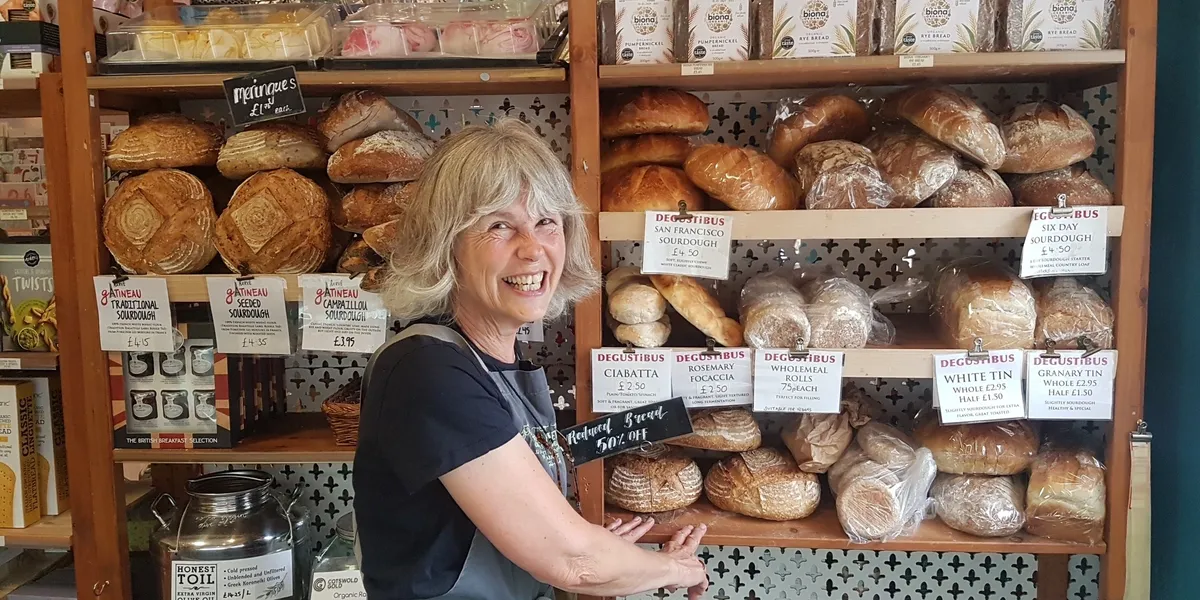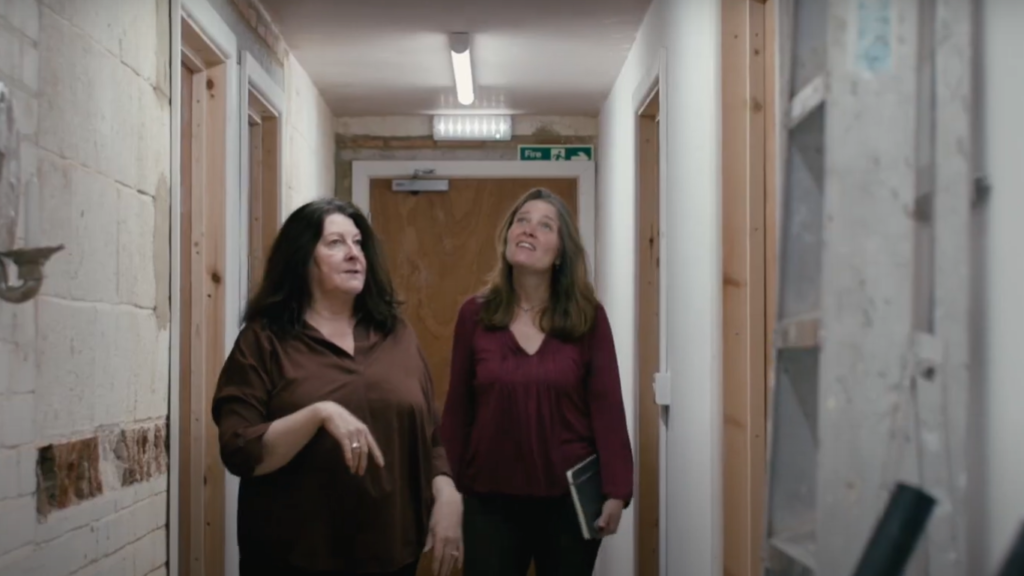
Case Study
The Market Garden: cultivating sustainability in the heart of the community.
Based in a rented seventeenth-century building within a conservation area, The Market Garden is more than just a local greengrocer, deli, and café. Owned by Jonathan and Lucy Bowden, this innovative business represents a unique blend of community spirit, environmental consciousness, and commercial viability.
Business philosophy: three fundamental aims
The Market Garden operates on three core principles:
- Community engagement: creating a business that serves and uplifts the local neighbourhood
- Carbon reduction: minimizing environmental impact through strategic sustainability initiatives
- Financial sustainability: proving that ethical business practices can be economically viable
These philosophies led the organisation to apply for an energy assessment from Energy Solutions Oxfordshire. The comprehensive report recommended six key interventions:
- Out-of-hours energy survey
- Draught proofing for external doors
- Secondary glazing installation
- Freezer coverage during non-operational hours
- Cavity wall insulation
- Solar panel implementation

If you’re an organisation in Oxfordshire, you can apply for a free energy assessment (like the one received by the Market Garden) to make your premises warmer and better for the environment.
Implementation strategies
Overnight energy management
A detailed night-time survey was conducted to reduce electricity base load, which is the minimum amount of electricity needed at any one time. Currently, only emergency lighting and LED window displays remain operational overnight, significantly reducing unnecessary energy consumption.
Structural improvements
- Draught reduction: replaced a buckled oak door with an aluminium alternative and replacing the sill on another leaky doorway.
- Thermal insulation:
- Installed secondary glazing on single-glazed windows
- Thermal imaging revealed gaps in ceiling insulation around LED spotlighting. Once discovered, loft insulation issues were corrected where lighting installations had disturbed existing insulation
Refrigeration optimization
The business made strategic investments in efficient refrigeration:
- Replaced an old chest freezer with a super-efficient upright model (Pastorfrigor)
- Innovative heat management: positioned compressor and heat exchanger internally to retain heat in the building.
- Moving a second chest freezer outdoors with an insulated silver bubble wrap cover
Renewable energy
Modular solar PV panels were installed on an east/west facing roof, supported by Low Carbon Hub funding. Jonathan reports the system is performing exactly as predicted, generating anticipated energy savings.
Waste management and circular economy
The Market Garden has developed an innovative approach to waste management:
Composting initiative
- Invested £3,600 in a Ridan aerobic composter
- Processes 95 litres of weekly café and shop food waste
- Combines food waste with wood chip compost in a 50:50 ratio
- Produces high-quality soil conditioner for the market garden
- Eliminates need for external compost purchases
Creative waste repurposing
Coffee grounds are transformed into a social enterprise opportunity, used to grow Shiitake mushrooms and provide winter work for the Farmability charity.
“From our modest beginnings as a market stall here in Eynsham, we’ve always tried to put the environment at the heart of everything we do at The Market Garden. Having Low Carbon Hub (and ESOx) virtually on our doorstep has been a real plus in navigating the sustainability options available to us as well as the generous funding they provided for our PV installation. We look forward to working with them into the future with several further exciting carbon reduction initiatives we have planned.”
Jonathan Bowden, The Market Garden
Future sustainability roadmap

Planned initiatives (summer 2025 and beyond)
- Installation of an air-to-air source heat pump
- Additional solar PV installation at the building’s front
- Connection of a Mixergy smart hot water tank
- Cavity wall insulation completion
- Installation of a timer for LED window lighting to reduce overnight energy consumption
Financial and environmental benefits:
- £2,800 saving per year in electricity costs (based on our current unit rate of 21.62p/kWh)
- £400 annual savings on compost purchases
- £480 annual savings on food waste disposal
- Reduced carbon footprint
Reflections and learnings
Jonathan candidly reflected on two key decisions he would reconsider:
- Due to expediency installing a gas boiler during COVID-19, instead of immediately transitioning to a heat pump.
- Choosing a gas hob over an induction hob in the café kitchen In retrospect Jonathan would have like to have minimise gas usage to a greater extent, because gas will never be able to decarbonise in the way the electricity grid is steadily already doing.
A model of sustainable enterprise
The Market Garden demonstrates that low carbon focused businesses can simultaneously:
- Reduce carbon emissions
- Generate financial returns
- Create meaningful social impact
- Preserve historic architectural heritage
By integrating sustainability into every aspect of operations, Jonathan Bowden has created a blueprint for responsible entrepreneurship.
Prepared in collaboration with The Market Garden.
This case study has been prepared as part of the implementation of the Community Action Plan for Zero-Carbon Energy (CAPZero). The first of its kind in the UK, the CAPZero shows how a cluster of communities in West Oxfordshire can create a zero-carbon energy system in their area by taking action now. To reach net zero by 2050, 20% of businesses need to reduce their energy demand, with large businesses leading the way.